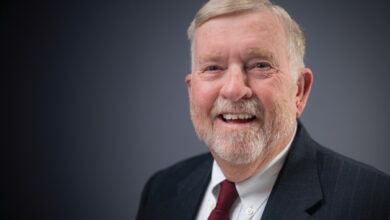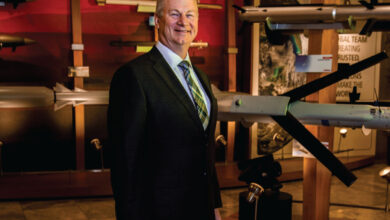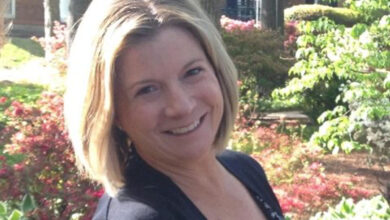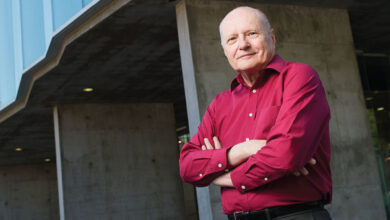
Dave Sitton
Tucson Bids a Tearful Farewell to Dave Sitton
“No one ever said life was going to be all fun and games, it only turned out that way.”
– Dave Sitton
What a ride it was for William David Sitton, one of Tucson’s eclectic icons who did seemingly everything for everybody.
He did it with energy and enthusiasm. People – and their causes – were his labor of love.
“In terms of service to the community, I don’t know of anyone who gave so unselfishly to so many causes as Dave,” said Chris Clements, CEO of Golden Eagle Distributors and a loyal friend who considered Sitton a father figure after his own father, Bill Clements, passed away.
Sitton’s impact went far beyond Southern Arizona, and could be felt throughout the world. From rugby to business ventures, sports leadership to building connections, Sitton touched the lives of many.
Sitton died Aug. 12 in Tucson from a pulmonary embolism. He was 58.
“He wanted to be part of the solution,” said Mark Irvin, president of the Boys & Girls Clubs of Tucson.
“He was kind, good-spirited, he was caring,” Irvin added. “He wasn’t good at saying ‘no.’ He believed in the handshake. And if he said he was going to do something, he did it.”
When the more than 2,000 people who attended Sitton’s public memorial at University of Arizona’s McKale Center were asked to stand if Sitton had made an impact on them, all rose to their feet, demonstrating the magnitude of his influence.
“He’s left a huge void and I’m not sure if the community realizes how much we need him,” said Tim Stilb of the Tucson Conquistadores, of which Sitton was a member. “His passion was to help people. He did it because he believed in it.”
And Sitton believed in a lot.
Known as the “Voice of the Wildcats,” Sitton announced UA baseball, football and basketball games. He worked for Fox Sports Net. And Sitton, who coached rugby at UA for 35 years, was the worldwide voice of U.S. and international rugby on ESPN.
The Los Angeles native came to Tucson to attend the UA in 1973, earning a fine arts degree in 1978. He loved to sing and was an avid fan of the Tucson Pops where he served on the board and raised funds for three decades.
He also had a passion for history and politics. He ran enthusiastically, but unsuccessfully, in the 2012 Republican race to fill the seat of U.S. Rep. Gabrielle Giffords.
From The Centurions to the Conquistadores and everything in between, Sitton worked a room and a golf course as he raised money for causes dear to his heart.
“Dave was more than just a member (of The Centurions),” said Bill Hussey, president of the board. “He joined in 1984 and had been very involved. He was our emcee and he’d jump on the stage and join the band in the many different songs – ‘Mack the Knife,’ ‘Secret Agent Man.’ Dave was a mentor, a business leader and a friend to so many.”
Hussey, national sales manager at Clear Channel Outdoor (formerly Eller Media Company), said Sitton was hired by Karl Eller to run the Tucson plant “because of his extensive community connections and PR skills.”
Sitton remained GM and VP for nearly nine years. “Dave’s relationships with the university and Eller College of Management benefited the business greatly. On a personal level, he was a lot of fun to work with and we all miss him,” Hussey said.
In addition to his work, Sitton loved his country, loved rugby, loved his daughters – Olivia and Blakeney – and, of course, his Los Angeles Dodgers.
There was no obstacle too high, no challenge too great. As Irvin said, he even “kicked cancer’s ass,” having beaten lymphoma. That was no shock to his sister Margie Sitton, who was used to her younger brother winning, striving. He knew nothing of the word “defeat.”
“When he went in for treatments he’d wear camouflage and asked the doctor to wear camouflage because they were in the fight together,” she said. “He wasn’t going to be a victim. He was going to beat it.”
More importantly, she said he wanted to be a role model for children who were battling cancer. “He wanted them to know it wasn’t a death sentence and that they could win.” She’d often encourage people to listen to a Sunday radio show her brother hosted because it was part inspiring and informational.
“It was filled with optimism,” she said. “It was about fighting and winning.”
Sean Mooney, Sitton’s good friend, said Sitton loved that radio show.
“He did three shows – Cancer Fighters, American Warrior and Daily Male – and all were a platform to spread his message on three causes he felt strongly about,” Mooney said.
Former Arizona baseball coach Jerry Kindall knew Sitton for nearly 40 years, first meeting on the baseball field when Sitton was attempting to walk on at UA. Kindall called Sitton a constitution scholar, gamer, a patriot and so much more.
“Dave Sitton was a gamer, one of the highest names a coach can give to his players,” Kindall said. “He was always ready and unselfish and clutch when the game was on the line.”
Yet Sitton never played in what Kindall said was a mutual retirement after Sitton suffered bad knees and a bad shoulder. “And he still stayed connected with us for the next 40 years,” Kindall recalled.
“He became one of our gamers when he became one of our radio broadcasters when we joined the Pac-10. We owe him so much in the athletic department, particularly in the baseball program.”
Greg Byrne, VP for athletics at Arizona, talked about Sitton’s zest for life, community and all things UA.
Byrne called Sitton the “bucket filler,” making people’s lives better just because he was around. Arizona has named its Arizona Stadium broadcast booth after him.
How appropriate.
Who but Sitton would have been important enough for Tommy Lasorda to send a letter of condolence?
The former Los Angeles Dodgers manager wrote to Sitton’s family, “Dave struck me as such a well-rounded human being and endeared himself to me as a huge fan of baseball. He was a fabulous ambassador to the University of Arizona and the city of Tucson.”
How many organizations was Sitton involved with? It would be easier to list the ones he wasn’t.
“There is nothing greater in life than people giving of themselves – and Dave gave of himself more than anybody in the community,” said Michael Hannley, a longtime friend. “His assets were not in dollar signs but through all his friends.”
Hannley, president and CEO of the Bank of Tucson, said for years he tried to convince Sitton to charge for his services as auctioneer, emcee or marketing guru. “He’d never do it,” Hannley said.
Sitton was Mr. Sweat Equity. If he couldn’t do it – rarely – he’d find someone who could.
He was a man of impact and importance, but never acted like he was. There was substance behind his sizzle.
“He helped so many people through so many organizations,” said Dr. Fayez Ghishan, head of pediatrics, director at the UA Steele Children’s Research Center and physician-in-chief at The University of Arizona Medical Center – Diamond Children’s.
“He helped raise an incredible amount of money to start incredible programs,” including ones to develop better treatments and hopefully an eventual cure for type 1 diabetes, through Father’s Day Council Tucson.
“Everything was because of Dave,” he said. “We’ve done so much. And none of it would have happened without Dave. We’d still be in the dark ages without him.”
When Sitton passed away, the city – the world – lost an ambassador for seemingly every cause known to man. If Sitton was at an event, you knew it was a worthy cause.
Cindy Parseghian knows his impact all too well. She’s known him for more than 30 years, and they sat together on a number of boards, including the March of Dimes in the mid-1980s.
“That’s when I realized the true depth of Dave’s huge heart,” Parseghian said. “We started families and our daughters, Olivia and Marcia, were weeks apart in age and attended the same preschool. Being a parent was Dave’s biggest joy.”
When the Parseghians suffered a parent’s worst nightmare with three of their four children being diagnosed with Niemann-Pick Type C – a rare and fatal disease – Sitton, of course, was there to help.
“One More Victory” became yet another rallying cry for Sitton, and the community gathered annually to raise funds for a cure. “Dave, of course, would be the master of ceremonies,” recalled Parseghian, president of the Ara Parseghian Medical Research Foundation.
“Each year he would introduce my husband Mike and me with praise and accolades,” she said. “I always remember thinking it should be the other way around, we should be praising him. We didn’t have a choice whether to show up. But Dave had a choice and Dave always showed up.”
He may have been running late – it turned into a signature move for pretty much every event – but the guy many called Pops, WD, David or Davey was always there. He was as predictable as Tucson’s sunshine.
He could go from serious to funny in a split-second, go from wearing a tuxedo to a pair of gym shorts and an oversized rugby shirt just as fast. He was a man for all occasions.
He loved his role as coach of the UA rugby team, influencing 1,200 young men over more than three decades.
And his love for military and country was, well, epic. He was honorary commander for the 55th Rescue Squadron at Davis-Monthan Air Force Base and was on the DM50 board of directors.
“He was a very dedicated squadron commander,” said Jay Humphrey, a friend for nearly 20 years and now assistant director of operations of the 66th Rescue Squadron in Las Vegas. He said you could talk to some of the commanders and they wouldn’t know who they commanded – “but not Dave. Whenever we’d return from deployment he’d always be there.”
While he did none of this for the accolades, his tireless efforts did not go unnoticed. Sitton received the U.S. Marine Corps Outstanding Citizen Citation, the Lute Olson Scouts Honor Award from the Boy Scouts of America, the Willie Kane Humanitarian Award and the Bear Down Award from the UA Alumni Association.
He was named a Father of the Year by Father’s Day Council Tucson and Tucson Man of the Year by what is now known as Tucson Metro Chamber.
Sitton lived life to the fullest. Whether it was on the field or in the broadcasting booth or behind the microphone at an event, he was home. And he did it all for the love of his community.
“The community owes him a tremendous amount of gratitude,” said lifelong friend Clements. “He stood in the gap for countless individuals and organizations. It’s time for the community to do the same for him and for his family.”
Good night and goodbye, Mr. Sitton. And thank you.





